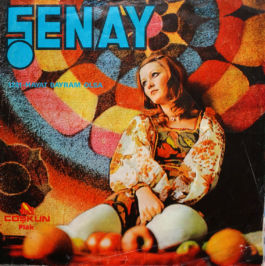
Released April 2020
Conference paper by Holger Lund
Decolonizing Turkish Pop Music Historiography. Anatolian Rock Studies as an Example
Recently, things have changed. Inside and outside Turkey, there has been an English turn in Turkish music studies. For a few years now, especially since 2018, a new wave of Turkish musicology scholars has published their research in English. They are participating for the first time in a global, English-dominated discourse about music and music history (which is language-wise, of course, a colonial heritage). Gedik even writes about his own fundamental book Made in Turkey “that such a comprehensive collection [of articles dealing with music from Byzantine times until today] does not even exist in Turkish.”
Scholars from Turkey participating today in the global music discourse allow for the very discourse to take new perspectives on Turkish music history. A lot of up to now outside Turkey not well known information is entering the discourse, being debated and developed further, opening also new – decolonial – perspectives on Turkish music history and historiography.
Ayas for example states: “The theoretical framework built in the West to classify popular music reflects the socio-historical characteristics of the Western societies.” He argues that “this framework is not suitable to understand the music debates in Turkey.” A new framework is started to be built by Turkish and Non-Turkish scholars and will be presented in an overview using discourse analysis combined with decolonial thinking. This framework includes approaches like an (Re-)Ottomanization, a Balkanization, a Mediterraneanization, and a transnationalization of research.
In March 24-25, 2020 the conference “Sound / Music / Decoloniality: A Research Colloquium,” should have taken place at Maynooth University Arts and Humanities Institute in association with the Department of Music and the Society for Musicology in Ireland, organized by Shane McMahon.
The conference was canceled due to the Corona crisis. My text “Decolonizing Turkish Pop Music Historiography. Anatolian Rock Studies as an Example” was planned as contribution. As the text snapshots current developments, I decided to publish it as a conference paper on ResearchGate and Academia.edu to make it accessible for discussion as quickly as possible.
Get the text here:
or here: